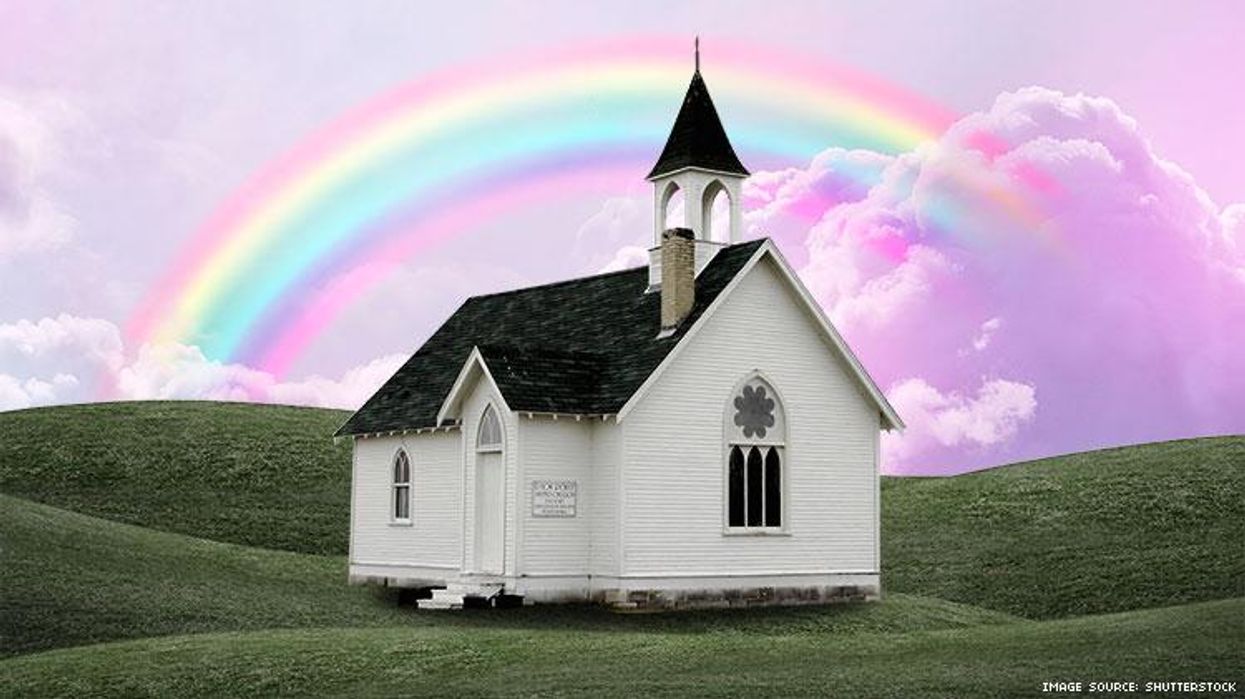It is really painful to sit aside and watch my friends in the United Methodist Church continue to struggle with the denomination's policies concerning LGBTQ people.
Especially when the second largest protestant denomination in the United States holds such a contradiction of being filled with LGBTQ people and allies, committed to social justice, but still holds policies and doctrine that actively exclude LGBTQ people.
Officially, the denomination rejects LGBTQ people. The Book of Discipline, the highest governing document for the denomination, states "homosexually is incompatible with Christian teaching." The denomination forbids ordaining LGBTQ people or performing weddings for same-sex couples. There have been numerous attempts to change this policy since the 1970s, to no avail. Local churches and ministers have ignored the policies to perform weddings and elevate the leadership of LGBTQ people.
This special General Conference was called for the sole purpose of deciding the fate of LGBTQ people in the church. The current conference offered a variety of proposals concerning how the church can relate to LGBTQ people. The "One Church" proposal, which would have created more local decision making about LGBTQ people, was rejected by the delegation.
Meanwhile, the "Traditional" proposal, which will continue persecution of LGBTQ people and their allies in the church, was adopted, despite elements being declared unconstitutional. Anti-LGBTQ forces forced through a plan that would actively discriminate and expel faithful United Methodists.
The entire process has entailed a lot of chaos and a lot of hurt, especially for LGBTQ people who still wish to see a place in the church they call home. However, the message seems clear, the United Methodist Church will not be a safe place for LGBTQ people. It is moving in the direction of punitive rejection.
It is so jarring to hear such anti-LGBTQ language come from a denomination that has produced some wonderful advocates and allies. Through my work at GLAAD, I supported United Methodists at their 2012 General Conference, when similar attempts were made to move the church in a more affirming direction. I know a lot of queer Methodists, and a lot of really strong allies. In fact, the first legally recognized same-sex marriage was performed by a United Methodist Minister in Minnesota in the 1970s.
Over the weekend, we saw United Methodist congregations and individuals around the country declare that they would continue to be a place that will welcome, accept, support, and raise up LGBTQ people in the life of the church. It was a defiant act, in favor of the Gospel, but it continues to be difficult to know where to go from here. Especially for those of us outside the United Methodist Church.
I want to be a supportive ally to my United Methodist friends who have been part of the 40-plus years of struggle. I know what they are going through. It was only 10 years ago when my own church, the Evangelical Lutheran Church in America, changed its policy allowing the denomination to find ways to recognize committed same-sex relationships and to ordain clergy in such relationships. That change happened after 40 years of work in our own denomination, capped off by a eight-year study process within the denomination. It was long, slow work, but we eventually got there.
That's why I want to see it happen for my United Methodist friends. I know it's possible! I've done it, and you can too! The dynamics of the United Methodist Church is different. It's a much more global church, with decreasing membership in countries that have embraced LGBTQ people.
So, as someone who wants to be a good ally to my UMC friends, what should I do? Invite them into my church, the Evangelical Lutheran Church in America? Encourage them to stay and fight for a time when the church will recognize and welcome its LGBTQ members? Help facilitate an American Methodist Church that is truly open and affirming? Just watch as the trickle of former United Methodists in North America becomes a flood?
All of these are possibilities. But the reality is that this is not my fight, and I can't dictate what their next course of action should be. Some will want to stay and fight. Some will want to join or create a more welcoming church. And some will decide that staying home on Sunday mornings is best. Each person is going to have to go through their own process.
As for me, I will offer support however I can, through listening, inviting, and supporting. I will continue to proclaim the Gospel and offer a balm to those who are hurting. And I will pray, not just for the United Methodist Church, but for the whole Christian church, that we can learn how to love one another as God first loved us.
ROSS MURRAY is the Senior Director of Education & Training at The GLAAD Media Institute, which provides activist, spokesperson, and media engagement training and education for LGBTQ and allied community members and organizations desiring to deepen their media impact. Ross has secured national media interest in stories that bring examples of LGBTQ equality across diverse communities in America. In 2014, he was named one of Mashable's "10 LGBT-Rights Activists to Follow on Twitter." Ross is a consecrated Deacon in the Evangelical Lutheran Church in America, with a specific calling to advocate for LGBTQ people and to bridge the LGBTQ and faith communities. Ross is also a founder and director of The Naming Project, a faith-based camp for LGBTQ youth and their allies. The Naming Project has also been the subject of much media, including the award-winning film Camp Out, as well as the controversial episode "Pray the Gay Away?" of Our America with Lisa Ling.















Charlie Kirk DID say stoning gay people was the 'perfect law' — and these other heinous quotes
These are some of his worst comments about LGBTQ+ people made by Charlie Kirk.